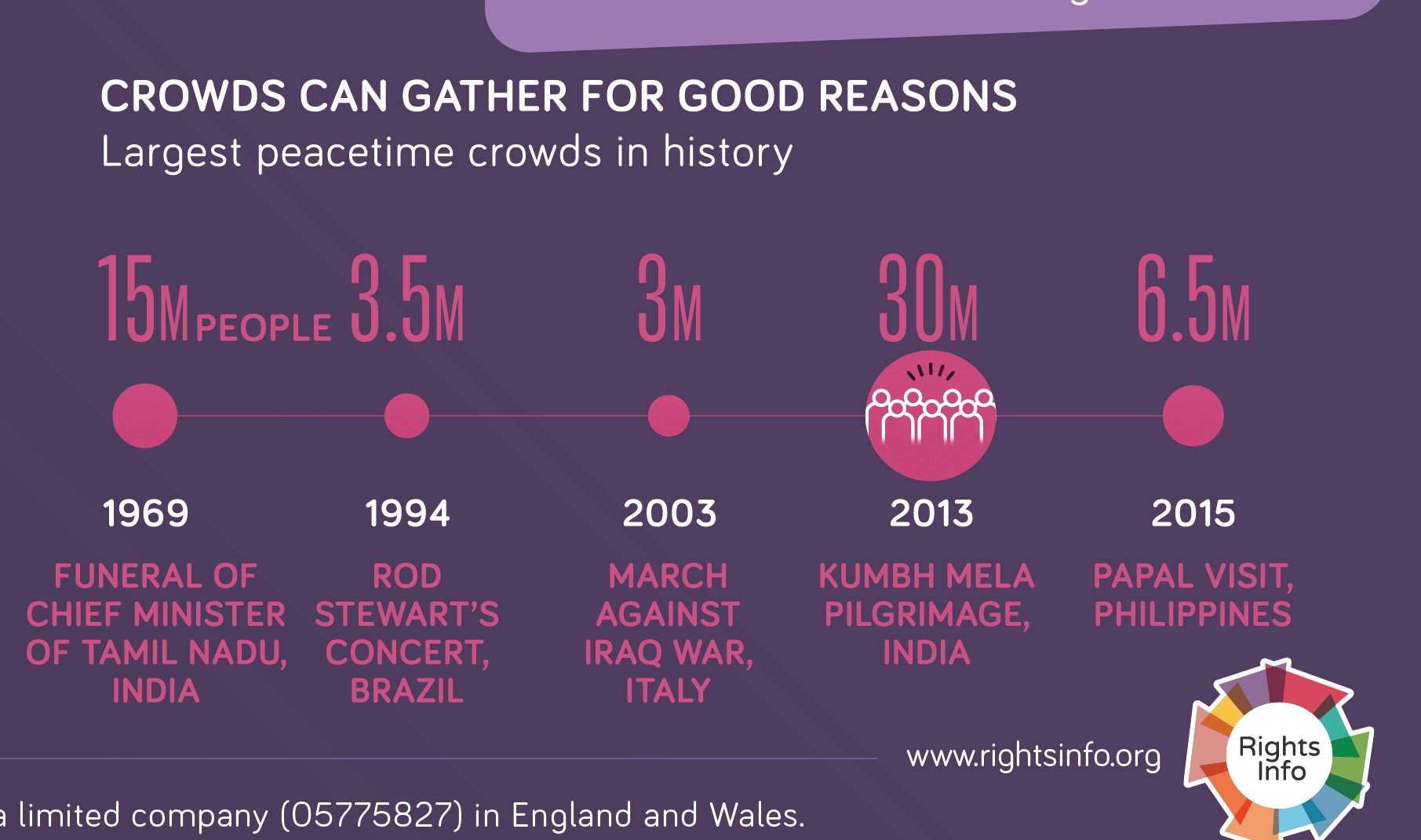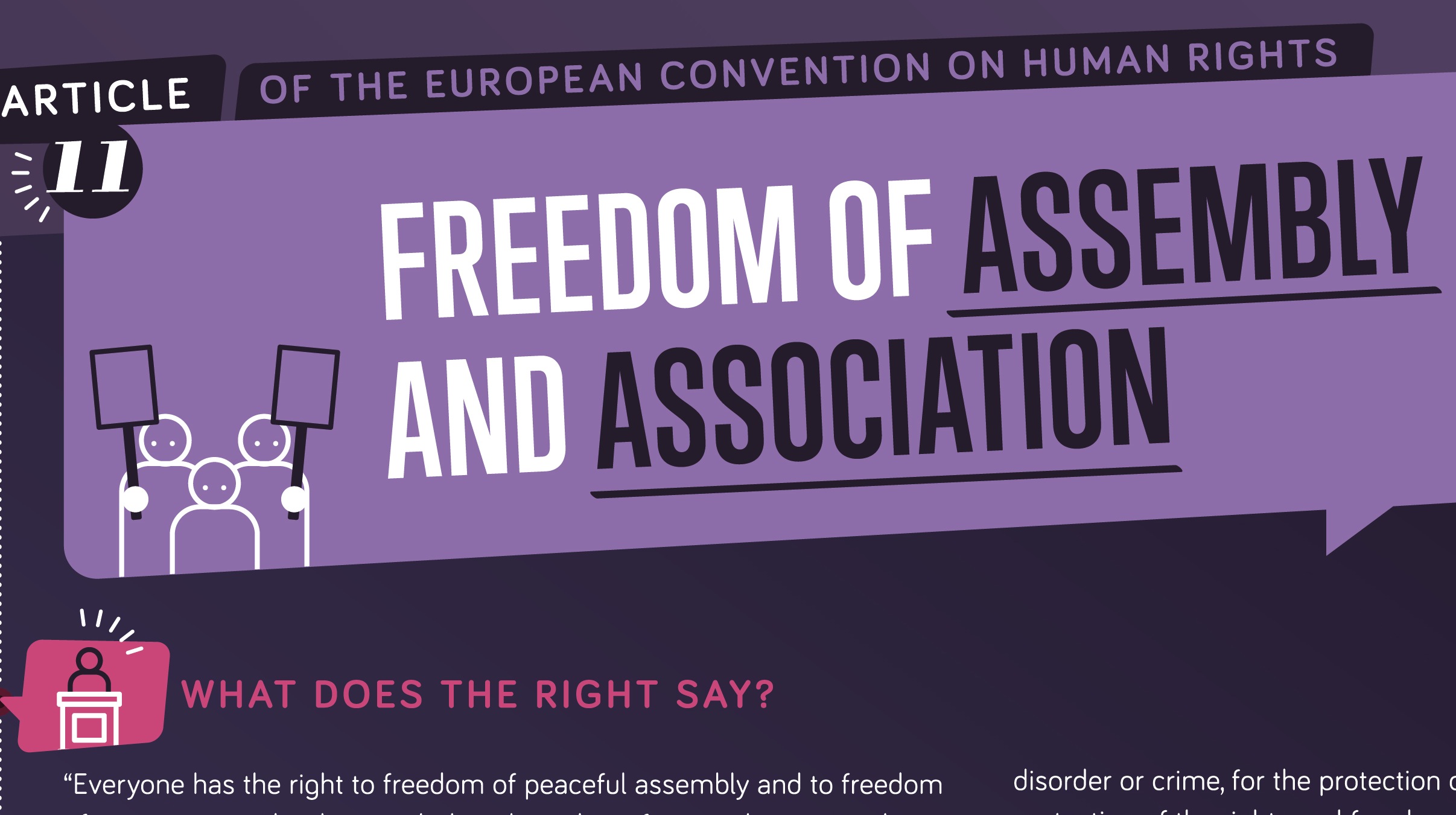We have just launched a beautiful set of 16 infographics, each explaining one of the key human rights protected by law. You can see them all here and the Article 11 infographic here.
The right to get together and protect our common interests is hard won. Article 11 is about us having agency and autonomy over things that affect us. It gives us a voice. The right to protest peacefully against a war you don’t agree with, for example. The right to join a trade union. In one key case, a large organization banning an independent union from being recognized was found to be in breach of Article 11. Equally, that voice should never be imposed upon you – so if you do not want to join a trade union, you can’t be forced to.
Unlike the right to life, or the right to a fair trial, our right to protest and freedom of association has not always been a part of UK law; so it has great significance. Before 1871, trade unions were illegal. They sprung up during the industrial revolution when men, women and children often worked for very long hours, for poverty wages, in extremely dangerous conditions. Trade unions meant that workers could get together and stand up to employers. Without them we wouldn’t have sick pay, annual leave, standard working hours, or a weekend. Nor would there have been such strides to tackle workplace discrimination, harassment or equal pay legislation for women. This has all fed into international labour law, which is where the development of Article 11 comes from.
Article 11 means that as well as joining (or not) trade unions, we can take part in peaceful protests. We can set up or join associations, like political parties. It is, however, a qualified right. So, it can be limited – for example, to protect public order.
 Understanding our Article 11 rights is especially important at a time when many fear these rights are threatened by the proposed Trade Union Bill. We may well feel inconvenienced on days when the tube doesn’t run, or worried when 98% of junior doctors are on strike. But is that a reason to have our own right to have a say about our working conditions, or any other subject that matters to us, reduced or taken away?
Understanding our Article 11 rights is especially important at a time when many fear these rights are threatened by the proposed Trade Union Bill. We may well feel inconvenienced on days when the tube doesn’t run, or worried when 98% of junior doctors are on strike. But is that a reason to have our own right to have a say about our working conditions, or any other subject that matters to us, reduced or taken away?







